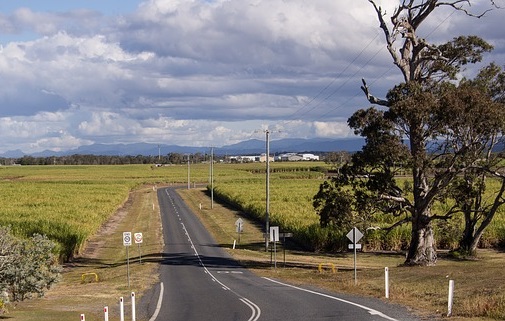
“We need good, committed people working in regional and remote Australia – that’s a fact,” says Charlie Klein, teaching principal at Tjuntjuntjara Remote Community School.
“We’ve got to have more teachers here committed to making a strong difference in their nation by committing to going and living in the bush,” he continues.
Klein admits that working in remote Aboriginal communities comes with an abundance of challenges – from navigating a complex cultural context to overcoming the sheer geographic isolation.
“One of the biggest drawbacks I hear from people is that they don’t want to leave their social network,” says Klein. “What they don’t understand is that by coming and living in remote areas, they’re going to build their network and they’re going to enhance it.”
Despite enormous cultural differences, Klein says the local Spinifex people have welcomed teachers into their community and included them in important ceremonies.
“About half a kilometre out of the community, they’ve currently got what they call a business camp and they took all of the teachers up there and included us in the ceremony so we understand what they’re doing in their culture,” reveals Klein.
“All of the female staff – our two teachers and my wife – they danced with the community then they invited all of the non-Aboriginal people to come and learn and share,” he continues. “That’s a very generous thing for them to do and it’s an amazing thing to be engaged in.”
As well as being immersed in a unique culture, Klein says remote teachers can expect generous remuneration and a well-funded school.
“One young graduate told me he earns double that of his friends back in Tasmania and the resourcing for remote schools is very positive right now so there are significant benefits but very few people are prepared to do it,” he says.
For those who are prepared, Klein says there are certain traits that embody the ideal remote educator.
“There has to be a level of commitment and a respect for Indigenous people, their culture and their language,” he says. “Watching and being part of a community that keeps bouncing back and having a go, maintaining their culture, that’s an amazing thing.”
Klein also says educators considering a remote post must also be flexible.
“One of the classic examples we have of that is from about three years ago when we had the end of term celebration,” he tells the Educator. “We have an assembly, people look around classrooms and then share a meal together but two of the mums came up to me and said they couldn’t come because there was an initiation process planned.”
Rather than letting the women and other community members miss out, Klein negotiated with the women and ended up delaying the school event by a few hours.
“We watched the whole community women and kids march out into the bush to meet the rest of their community for the celebration then some time later they returned and filled the school,” he says.
“You had men who were [painted with] ochre and had been doing traditional business they’d been doing for thousands of years and then five minutes after leaving the bush they’re in schools playing on iPads with their kids,” he continues.
Had Klein refused to change the original plan, he and the entire community would have missed the experience.
“It’s about being adaptable and taking those changes on the chin,” he says. “Yes, sometimes it doesn’t work but you’ve got to give it a try and you’ve got to be ready to build those community relationships and the shared understanding.”
Klein also says anyone considering a remote post must be prepared to go the extra mile – both literally and figuratively.
“Are you someone who’s going to do the extra little bit, are you the teacher that’s going to go out and visit families at the end of the day when the kid’s done something good or you’re worried about a kid?” asks Klein.
If you are, Klein says you could make a real difference to Australia’s remote communities.
“If you’re interested in working in remote schools across Australia, if you have an inkling you’d like to, go and learn about it, go and get some experience in it and just go and do it,” says Klein.
“It can be very difficult but it comes with a strong moral purpose and a strong contribution – we’re making a difference in the lives of our kids and their families and we’re working with communities to make the nation stronger.”


